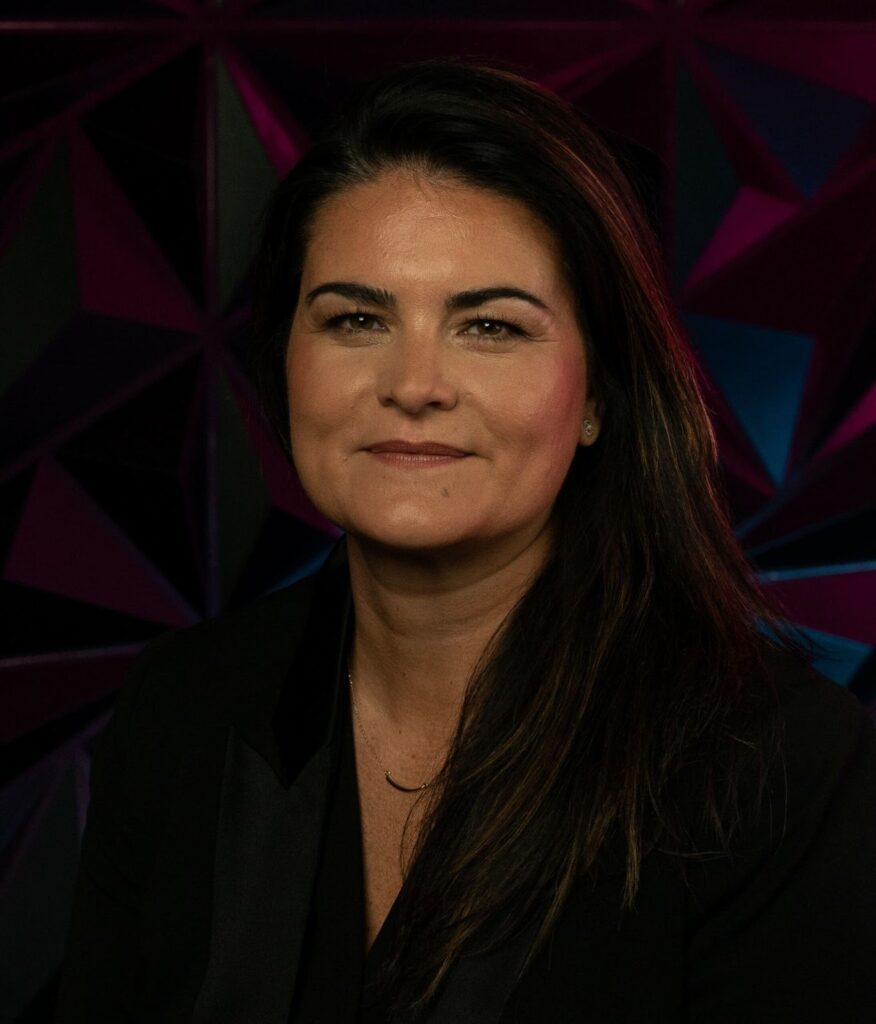Viele Start-ups schaffen es, sich selbst zu erhalten, aber nicht zu skalieren, und die Aufgabe der Skalierung wird mit einer größeren Organisation nur noch schwieriger. Aus diesem Grund wenden sich sowohl etablierte Unternehmen als auch Start-ups an Chief Revenue Officers (CROs), um zu wachsen.
New York, das aufgrund der schieren Fülle an Ressourcen und Reichtum als Empire State bezeichnet wird, zeigt, dass der Wert eines CRO nicht unterschätzt werden kann, insbesondere im Jahr 2025.
Lassen Sie uns die CRO-Rolle als Ganzes untersuchen, warum sie heute wichtiger ist als je zuvor, und einige Top-CROs in New York hervorheben, auf die man achten sollte.
Was ist ein CRO?
Ein Chief Revenue Officer ist eine Führungskraft in einem Unternehmen, die für die Überwachung aller umsatzsteigernden Aktivitäten eines Unternehmens verantwortlich ist.
Anders ausgedrückt: Ihr Ziel ist es, sicherzustellen, dass alle Teams beteiligt und auf das gleiche Ziel ausgerichtet sind, nämlich mehr Geld einzunehmen. Dazu gehören verschiedene Abteilungen wie Vertrieb, Marketing, Preisgestaltung, Partnerschaften, Kundenerfolg und Kundenbetreuung. Ihr einziges Ziel ist die Maximierung von Umsatz und Gewinn.
Oft werden sie mit den traditionellen Vertriebs- oder Marketingleitern verwechselt, und ihre Rolle ist ähnlich, aber die des CRO ist funktionsübergreifend. Ein VP of Sales konzentriert sich nur auf den Vertrieb, aber ein CRO kümmert sich um alles, was mit den Einnahmen eines Unternehmens zu tun hat, was seinen Arbeitsbereich erweitert.
CROs kümmern sich um alles, von der Generierung von Leads bis zum Verkaufsabschluss, und gehen oft über die traditionellen Vertriebs- und Marketingaufgaben hinaus.
Aber was tun sie?
In der Praxis besteht die Arbeit eines CRO darin, eine durchgängige Ertragsstrategie zu entwickeln, die alles umfasst:
- Sie legen die Preise fest
- Ziele definieren
- Entwicklung neuer Vertriebskanäle und Partnerschaften
- Verfeinerung der Preismodelle
- Koordinierung von Marketingkampagnen
- Verbessern Sie die Customer Journey auf praktische, vorhersehbare und nachhaltige Weise
Sie vereinen alle Teams - Vertrieb, Marketing und alle anderen - und lassen sie auf ein gemeinsames Ziel hinarbeiten. Sie sind der Dirigent der unterschiedlichen Kräfte in einem Unternehmen und überbrücken die Kluft zwischen Marketing, Vertrieb, Produkt und Support.
Warum CROs im Jahr 2025 führend im Wachstum sind
Der Trend zu CROs begann im Silicon Valley, hat aber inzwischen auch den Mainstream erreicht. Für Start-ups und etablierte Unternehmen sind CROs weit mehr als nur ein modischer C-Suite-Titel, sondern ein echter Titel, der einen Unterschied macht.
Studien von McKinsey haben ergeben, dass Fortune-100-Unternehmen mit CRO-ähnlichen Funktionen ein 1,8-fach höheres Umsatzwachstum verzeichnen als Unternehmen ohne CRO. Das sind echte Ergebnisse, und zwar signifikante Ergebnisse. Mit anderen Worten: Unternehmen, die von einem CRO geleitet werden, wachsen im Durchschnitt fast doppelt so schnell.
Kein Unternehmen arbeitet auf die gleiche Art und Weise, aber alle Unternehmen müssen innerhalb des Geschäftsumfelds von 2025 arbeiten. Dazu gehören die massiven Fortschritte in der Technologie (wie generative KI) und andere Dinge, die die alten Vorstellungen von Geschäftsabläufen völlig erschüttert haben.
Die Kunden haben viel mehr Möglichkeiten und Zugang zu mehr Informationen als je zuvor. Sie werden von links und rechts umworben, und die Unternehmen können es sich nicht mehr leisten, aufgrund von Abteilungen, die nicht zusammenarbeiten können, ins Hintertreffen zu geraten.

Es hat sich gezeigt, dass CROs den Entscheidungsprozess beschleunigen - ein unschätzbarer Vorteil in der heutigen Wirtschaft - und damit auch die Umsatzgenerierung auf breiter Front.
Vor allem Start-ups haben den Wert der Einstellung von CROs erkannt, und sie tun dies nun in der Regel frühzeitig. Im Vergleich zu Unternehmen, die zwischen 2009 und 2015 gegründet wurden, haben Unternehmen, die zwischen 2016 und 2022 gegründet wurden, doppelt so schnell CROs eingestellt, was die sich verändernden Prioritäten in der Wachstumsführung widerspiegelt. [1]
Kurz gesagt, CROs sind im Jahr 2025 führend im Wachstumsspiel, weil sie das gesamte Unternehmen auf die Umsatzziele ausrichten, die Ausführung beschleunigen, indem sie die besten Technologien und Strategien nutzen, die es auf dem aktuellen Markt gibt, und sich so reibungslos und profitabel wie möglich an den sich verändernden Markt anpassen.
Was macht einen Top-CRO in New York aus?
Alle Märkte an verschiedenen geografischen Standorten sind unterschiedlich, aber New York ist besonders einzigartig. Hier gibt es alles, von kleinen Start-ups bis hin zu solchen, die ein absolutes Monopol auf ihre Nische haben.
Es ist ein globaler Markt, der extrem schnelllebig ist, und nicht jeder CRO kann hier wirklich erfolgreich sein. Um dies zu erreichen, muss man eine weitreichende Vision mit dem Straßengeschick eines Menschen kombinieren, der sich in der Stadt auskennt. Hier sind einige Eigenschaften, die die besten CROs in New York gemeinsam haben:
1. Strategische, funktionsübergreifende Führung
Die besten CROs wissen, was Umsatz ist und wie man ihn am besten generiert, wenn sich alle Abteilungen zusammenschließen und auf ein einziges Ziel hinarbeiten, für das sie verantwortlich sind. Sie brechen also Silos auf und vereinen Marketing, Vertrieb, Produkt und Service zu einer Einheit, indem sie gemeinsame Ziele (wie den Lifetime Customer Value) festlegen.
Das zusätzliche Problem, mit dem ein New Yorker CRO zu kämpfen hat, ist die Koordinierung von Teams über Zeitzonen und Kulturen hinweg, da die New Yorker Firmen eine globale Reichweite haben. Sie neigen dazu, dieses angeborene Gefühl dafür zu haben, wie alle Teile zusammenpassen.
2. Datengestützte Entscheidungsfindung
In New York ist es zwar wichtig, sich auf seinen Instinkt und sein Bauchgefühl zu verlassen, aber der Markt ist zu groß und unvorhersehbar, als dass man einfach dem "richtigen Gefühl" folgen könnte. Glücklicherweise bietet NYC von Natur aus ein datenreiches Umfeld, und die klügsten CROs machen davon unermüdlich Gebrauch.
Ähnlich wie sie Abteilungssilos aufbrechen, vereinen sie disparate Datenquellen und schaffen eine einzige "Quelle der Wahrheit", das heilige Wort, das sich ach so oft ändert. Der Vorteil ist einfach: evidenz-/datenbasierte Entscheidungsfindung.
Durch die Verfolgung von Kundenmetriken über die gesamte Reise hinweg können beispielsweise Erkenntnisse gewonnen und entsprechende Änderungen vorgenommen werden. Sie können Experimente mit der Preisgestaltung oder den Trichtern durchführen und die Marketingbotschaften ändern. Zu diesem Zweck setzen CROs häufig Technologien wie CRM- und RevOps-Tools ein.
3. Kundenzentrierte Denkweise
Die New Yorker schätzen es, geschätzt zu werden, und CROs sind ganz davon besessen, sich um einen einzelnen Kunden zu kümmern, weil Kundenbindung und Loyalität wichtiger sind als die bloße Gewinnung neuer Kunden. Von allen Top-Führungskräften haben CROs den klarsten Blick auf die gesamte Customer Journey, und sie nutzen diese Perspektive, um das Wertversprechen und den Wachstumsmotor des Unternehmens zu gestalten.
In der New Yorker Wettbewerbsszene, einem Ort, der eine heiße kulturelle Suppe ist, muss ein CRO die verschiedenen Kundensegmente (von der Wall Street bis zur Main Street) verstehen und dementsprechend Erfolgsstrategien entwickeln.
4. Anpassungsfähigkeit und Vision
Der NYC-Markt unterliegt einem ständigen Entwicklungszyklus, so dass CROs schnell sein müssen. Sie entwickeln eine starke strategische Vision, betrachten die Dinge eher langfristig als die kurzfristige Sichtweise traditioneller Vertriebsleiter, sind aber dennoch in der Lage, bei Bedarf schnell zu reagieren.
Sie fühlen sich auch unter Druck wohl: Das Tempo von New York bedeutet, dass ein CRO unter engen Fristen und Budgets Ergebnisse liefern und Teams inmitten von Veränderungen inspirieren muss.
5. Menschen und Kommunikationsfähigkeiten
New York ist ein Hotspot für Networking. Es ist ein Schmelztiegel der Kulturen. Die Menschen kommen aus verschiedenen Städten und Ländern und werden in verschiedene Abteilungen und Positionen eingeteilt. Ein CRO muss in der Lage sein, sowohl Ingenieure als auch Führungskräfte für sich zu gewinnen.
Sie müssen über die nötigen Kommunikationsfähigkeiten verfügen, um Investoren oder Vorstandsmitgliedern ihre komplexen langfristigen Ertragsstrategien auf einfachste Weise zu erklären, da sie vielleicht nicht zu den technisch versiertesten Personen gehören. Viele Top-CROs betreuen und entwickeln ihre Teams auch zu diesem Zweck.
Zusammenfassend lässt sich sagen, dass ein NYC CRO, der sein Geld wert ist, teils Stratege, teils Datenwissenschaftler, teils Diplomat, teils Motivationsredner und Geschichtenerzähler ist. Sie müssen die Vision haben, sowohl den Wald als auch die Bäume zu sehen. Wenn sie sich nur auf einen einzelnen Baum konzentrieren, verpassen sie den ganzen Wald, also gehört es zu ihrem Job, das große Ganze im Auge zu behalten.
CROs in New York, die man jetzt im Auge behalten sollte
Einige CROs wissen, wie sie aggressive Ziele erreichen und gleichzeitig nachhaltig skalieren können, insbesondere in einem der wettbewerbsintensivsten Ökosysteme der Welt. Lassen Sie uns tief eintauchen:
1. NUOPTIMA (Alexej Pikovsky, Gründer und Geschäftsführer)

Als einer der Die besten SEO-Agenturen in New York, NUOPTIMA ist darauf ausgerichtet, Architekten des Wachstums zu werden, und eine Möglichkeit, dies zu tun, besteht darin, Unternehmen mit leitenden Umsatzführern und CRO-Experten zusammenzubringen, um ihnen beim Aufbau eines geordneten Systems zu helfen. Dies ist besonders nützlich für Unternehmen, die ein hohes Wachstum erleben oder auf dem Weg dorthin sind.
Wir bringen Unternehmen mit unseren internen CRO-Kandidaten zusammen, die in einem strengen Auswahlverfahren handverlesen wurden. Diese Personen arbeiten darauf hin, Marketing, Vertrieb und Kundenerfolg auf das gemeinsame Ziel auszurichten, Ihr Umsatzpotenzial zu erreichen.
Unter der Leitung unseres Gründers, Alexej Pikovsky, haben wir mehrere Branchenpreise gewonnen (UK Search Awards, The Drum Awards, um nur einige zu nennen). Alexejs Hintergrund ermöglicht es uns, CRO-Kandidaten nicht nur nach ihrer vertrieblichen Abstammung, sondern auch nach ihrem Verständnis von Kapitaleffizienz, CAC-zu-LTV-Verhältnis und Skalierung in realen Märkten zu prüfen.
Durch unsere Arbeit mit Dutzenden von wachstumsstarken Unternehmen aus den Bereichen SaaS, Fintech, eCommerce, Gesundheit und Biotech haben wir ein zuverlässiges Netzwerk von Umsatzführern und ein praktisches Modell für eine verantwortungsvolle Skalierung aufgebaut.
Wir helfen den richtigen CROs, mit Ihrem Unternehmen in Kontakt zu treten. Kontaktieren Sie uns noch heute.
2. Andrea Kayal - Teampay

Unter der Leitung der SaaS-Wachstumsmanagerin Andrea Kayal konnte Teampay, ein Startup für Ausgabenmanagement, effektiv skalieren und wurde von Paystand übernommen. Davor trieb sie als CMO bei Fintech Electric das Wachstum von ~$5M ARR in den Bereich der Einhörner. Kayal wird für ihre Fähigkeit gelobt, ihren analytischen Verstand einzusetzen, um die Umsatzergebnisse bei knappen Marketingbudgets zu verbessern. Derzeit ist sie der CRO bei Help Scout.
3. Erica Anderson - Idee

Erica Anderson kam 2023 als CRO zu Notion, nachdem sie eine erfolgreiche Marketingstrategie für die KI-Produkte von GitHub, einschließlich GitHub Copilot, entwickelt und GitHub auf über $1B ARR skaliert hatte. Bei Notion konzentriert sie sich auf die Beschleunigung von "Aha"-Momenten bei Käufern und die Ausweitung von Onboarding-Programmen von KMUs auf Unternehmen. Ihre Erfahrung zeigt die moderne CRO-Mentalität: Ausrichtung von Produkt-, Kunden- und Umsatzstrategien bei gleichzeitiger Skalierung globaler Teams durch datengestützte Playbooks.
4. Kiva Kolstein - AlphaSens

Als Präsident und CRO von AlphaSense hat Kiva Kolstein die KI-gestützte Marktintelligenz-Plattform durch wichtige Produkterweiterungen geführt. Seine Karriere umfasst wachstumsstarke Positionen bei Handshake (übernommen von Shopify), Percolate (übernommen von Seismic) und der Gerson Lehrman Group (GLG).
5. Marc Jacobs - Cheq

Marc Jacobs hat im Januar 2023 die CRO-Aufgaben bei CHEQ übernommen. Er ist eine anerkannte Führungspersönlichkeit im Vertrieb mit mehr als 20 Jahren Erfahrung. Zuvor war er als CRO bei Spring Health tätig (wo er in weniger als drei Jahren eine 15-fache Umsatzsteigerung erzielte) und hatte leitende Positionen bei CB Insights, Greenhouse Software und VMware inne. Er wurde außerdem mit dem Pavilion's CRO Lifetime Achievement Award ausgezeichnet.
6. Rob Showers - Abgeleiteter Pfad

Rob kam zu Derivative Path, einem Fintech-Unternehmen, das Unternehmen beim Risikomanagement und Währungsumtausch unterstützt. Bei Derivative Path hat er dem Unternehmen geholfen zu wachsen, indem er starke Vertriebsteams aufgebaut und Partnerschaften mit anderen Unternehmen geschlossen hat. Er bringt eine Mischung aus fundiertem Finanzwissen und solider Vertriebsführung mit und verfügt über ein beeindruckendes Portfolio, da er in großen Banken und schnell wachsenden Finanztechnologieunternehmen gearbeitet hat.
7. Dotty Giordano - Gipfel

Dotty ist für die Einnahmen von Summit verantwortlich, das hochkarätige Veranstaltungen und Erlebnisse für Unternehmer und Kreative organisiert. Sie war früher bei großen Agenturen für die kreative Strategie zuständig und weiß, wie man eine starke Marke aufbaut - genau das, was sie bei Summit tut, indem sie die Kreativität in ein echtes Geschäft umwandelt. Dotty kennt sich mit der Zusammenarbeit mit Sponsoren, Partnern und Gemeinschaften aus, um sowohl die Einnahmen als auch die Wirkung zu steigern.
8. Rafe Petkovic - Leiste

Mit seinem Verständnis für die Bedürfnisse von Großunternehmen hilft Rafe bei Ledge, einem schnell wachsenden Fintech-Unternehmen, Unternehmen bei der Verwaltung ihrer Zahlungen. Vor Ledge hat er bei einigen großen Namen wie Klarna, Walmart und Google gearbeitet. Er konzentriert sich auf den Aufbau eines intelligenten, datengesteuerten und skalierbaren Vertriebsprozesses.
9. Zack Maier - Küste

Coast stellte Zack ein, um seine Plattform bei der Verwaltung der Flottenausgaben zu unterstützen. Zack tat dies auf verschiedene Weise, z. B. mit Tankkarten und Fahrerkosten. Er hat das Unternehmen durch große Finanzierungsrunden geführt und Partnerschaften mit Tankstellen und Dienstleistern aufgebaut. Er ist in der Lage, die traditionellen Branchen mit intelligenteren, neueren Technologien und Tools auszustatten.
10. Doug Smoyer - Global Citizen

Doug Smoyer ist für die Einnahmen von Global Citizen zuständig, der Organisation, die hinter großen Veranstaltungen wie dem Global Citizen Festival steht. Seine Aufgabe ist es, Partnerschaften mit Sponsoren und Marken aufzubauen, die den globalen Wandel unterstützen wollen. Er kommt aus der Sport- und Unterhaltungsbranche und weiß, wie man Veranstaltungen in einen langfristigen Geschäftswert verwandelt.
Die Zukunft von Revenue Leadership in NYC
Die Rolle des CRO ändert sich, und zwar schnell. Das R wird durch ein großes altes G ersetzt. Was früher ein Job war, der sich ausschließlich auf einen Aspekt (Verkaufszahlen) konzentrierte, ist heute wohl eine der funktionsübergreifendsten und wirkungsvollsten Positionen in jedem Unternehmen. In New York ist dieser Wandel sogar noch stärker ausgeprägt.
Vom CRO zum CGO: Eine neue Art von Umsatzführer
Immer mehr CROs übernehmen eine breitere Verantwortung für das Wachstum und übernehmen Rollen, die stark an "Chief Growth Officer" erinnern, auch wenn sich der Titel auf dem Papier nicht ändert. Dies ist eine der am schnellsten wachsenden Funktionen. Diese CGOs leiten nicht nur den Vertrieb, sondern auch Marketing, Kundenerfolg, Partnerschaften und manchmal sogar das Produkt. Und warum? Weil Wachstum im Jahr 2025 bedeutet, jeden Kontaktpunkt mit dem Kunden zu verstehen, nicht nur die Abschlussfaktoren.
In New York vollzieht sich diese Entwicklung schneller als anderswo, weil der Markt hier nach vielseitig qualifizierten Führungskräften verlangt.
NYC ist für die GTM-Strategie der nächsten Generation gebaut
Denken Sie darüber nach, was New York wirklich zu einem so starken Zentrum für CRO-Talente macht. Nun, man sagt, dass man das Produkt seiner Umgebung ist, und das ist auch hier der Fall. Hier ist jeder auf der Suche. Von Garagen-Start-ups bis hin zu Global Players, die fast ein Monopol auf ihre Tätigkeit haben. Von unten nach oben, buchstäblich alle. Die CROs sind gezwungen, sich ständig anzupassen. Sie müssen sowohl auf lokaler als auch auf globaler Ebene präsent sein.
Außerdem herrscht hier eine ausgeprägte Kultur des Experimentierens. Die führenden CROs in New York sind frühe Anwender von neuen Technologien, neuen Kanälen und neuen Vertriebsmodellen. Sie prägen, wie das Go-to-Market (GTM) für den Rest der Welt aussieht.
Die Messlatte wird höher gelegt
Inzwischen wissen Sie, dass CROs vielseitig begabt sein müssen, um in New York zu überleben. Es ist wichtig, ein Tausendsassa zu sein. Es reicht nicht mehr aus, nur ein guter Verkäufer oder Vermarkter zu sein. Sie müssen ein strategischer Denker und ein Macher sein, jemand, der Verantwortung übernehmen kann. CROs müssen sich in einer Vorstandsetage ebenso wohlfühlen wie in einem CRM, sie müssen bereit sein, ein System für nachhaltiges, langfristiges Wachstum aufzubauen, Stein für Stein, und ihre Teams so zu schulen, dass sie ähnlich arbeiten.
Abschließende Überlegungen
Der New Yorker Markt ist ein harter Brocken, einer der härtesten der Welt, und das ist keine Übertreibung. Aber harte Zeiten machen harte Menschen, denn so entstehen einige der schärfsten Umsatzführer und zeigen, wie moderne Wachstumsführerschaft tatsächlich aussieht.
Die CROs arbeiten mit Start-ups bis hin zu Unternehmen zusammen und bauen Systeme auf, die einem Unternehmen helfen, seinen Umsatz beständig und nachhaltig zu steigern.
FAQ
Ein CRO ist die Abkürzung für Chief Revenue Officer, der sich um alle umsatzfördernden Funktionen kümmert. Mit einfachen Worten: Seine Aufgabe ist es, sich um alles zu kümmern, was Geld einbringt, wie Vertrieb, Marketing, Partnerschaften und Kundenerfolg, und sicherzustellen, dass alles zusammenarbeitet, um den Umsatz schnell und intelligent zu steigern.
Es gibt keine offiziellen Ranglisten oder Rankings, die diese Frage beantworten. Jeder CRO bringt etwas Einzigartiges ein. Allerdings werden Personen wie Mark Wayland (Box), Kevin Haverty (ServiceNow) und Erica Schultz (Confluent, ehemals New Relic) häufig in Toplisten genannt.
Wenn wir nach den Zahlen gehen, könnte Philipp Schindler bei Google in den USA derzeit als der größte CRO gelten. Er leitet den weltweiten Vertrieb und das Partnergeschäft für die Google-Suche, YouTube und mehr und ist damit für einen jährlichen Umsatz von über $230 Milliarden verantwortlich. Das ist mehr Umsatz, als die meisten Unternehmen insgesamt erwirtschaften.
Referenzen
- https://www.mckinsey.com/capabilities/growth-marketing-and-sales/our-insights/a-bigger-bolder-vision-how-cros-are-propelling-growth-from-the-c-suite



